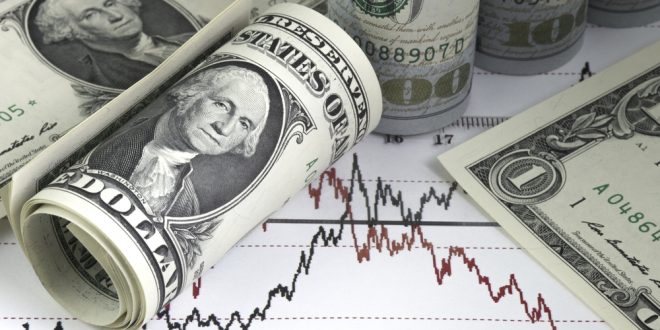The dollar fell during a quiet Asian session, after weaker than expected inflation data in the United States for January and the Federal Reserve’s repetition of its monetary easing stance, but the US currency compensated for some of its losses with the opening of European markets.
Data on Wednesday showed that core inflation in the United States was zero last month, against market expectations for inflation of 0.2%.
Federal Reserve Chairman Jerome Powell said that while the effects of the base period and pent-up demand are expected to boost inflation when the economy is fully reopened, this is likely to be temporary, indicating a further drop in prices and their stability over three decades.
Powell also emphasized that the central bank’s new policy framework could absorb annual inflation above 2% for some time before interest rates increase, which boosted market expectations for a weak return of the dollar.
Currency market movements were limited overnight due to the Lunar New Year holiday in Japan and China, but the dollar fell near its lowest level in two weeks against a basket of currencies.
It was down to 90.411 during the session, after compensating for some of the losses incurred overnight with the opening of European markets.
The euro was little changed against the dollar at $ 1.2121.
The Australian dollar, which is considered an indicator of liquidity in risk appetite, rose 0.3% to 0.7743 against the dollar, after approaching its highest level in two weeks overnight.
The pound sterling almost settled at $ 1.3825, below its three-year high of $ 1.3865, which it reached on Wednesday.
Oil prices fell, giving up some of the recent gains they made after Brent crude rose for nine sessions in a row.
The oil-related Norwegian krone retreated from its highest level in a year against the euro recorded on Wednesday and was trading at 10.261 against it.
Bitcoin was trading at about 44,682 dollars. The cryptocurrency, which is sometimes seen as a hedge against inflation, has fallen nearly 7% since it hit record highs on Tuesday. Ethereum has also fallen from recent record highs.
 Noor Trends News, Technical Analysis, Educational Tools and Recommendations
Noor Trends News, Technical Analysis, Educational Tools and Recommendations





